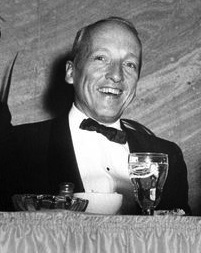In Manual Enterprises v. Day, 370 U.S. 478 (1962), the Supreme Court held that three homoerotic physique magazines — MANual, Trim, and Grecian Guild Pictorial — were not obscene and could not be barred from the mails.
Magazines featured nude men, ruled obscene
Presenting themselves as celebrations of “Greek” culture or healthy outdoor living, these magazines featured nude or semi-nude men in modeling and weight-lifting poses. The post office’s administrative board ruled that the magazines were obscene and that because the magazines carried advertisements telling readers how to obtain obscene photographs, they were also unmailable under the Comstock Act of 1873, 18 U.S.C. 461. The publishers unsuccessfully sought injunctive relief in federal district court to prevent J. Edward Day, the postmaster general, from implementing these rulings. The district court ruling was affirmed by the D.C. Circuit Court, but the Supreme Court reversed.
Court ruled that magazines were not patently offensive
In a plurality opinion, Justice John Marshall Harlan II (joined by Justice Potter Stewart) reasoned that obscenity includes two elements: “(1) patent offensiveness; and (2) ‘prurient interest’ appeal.” The magazines, although “dismally unpleasant, uncouth, and tawdry,” were not patently offensive. Harlan continued, “[T]hese portrayals of the male nude cannot fairly be regarded as more objectionable than many portrayals of the female nude that society tolerates.”
As for the advertisements, Harlan concluded that the government had not shown that the publishers knew the advertisers were selling obscene photographs. Harlan’s “patent offensiveness” requirement became part of the three-part test the Court later formulated in Miller v. California (1973).
Concurring opinions concluded the post office could not restrict obscene circulation
Concurring, Justice William J. Brennan Jr. (joined by Chief Justice Earl Warren and Justice William O. Douglas) painstakingly tracked the Comstock Act through its various incarnations since 1865 and concluded that the post office lacked the authority to craft regulations to restrict the circulation of obscene matter. Justice Hugo L. Black concurred without writing, and Justices Felix Frankfurter and Byron R. White took no part in the decision.
Dissenting opinion said post office could regulate nonmailable material
Justice Tom C. Clark dissented. Like the concurrence, Clark ignored the question of the magazines’ obscenity. He concluded that the publishers’ knowledge of the advertisements was irrelevant and that the post office had congressional authority to regulate nonmailable material.
Case was first gay rights victory in Supreme Court
Manual Enterprises, arguably the first gay rights victory in the Supreme Court, had a significant impact on gay and lesbian magazine and book publishing over the following decades. The papers of the lead petitioner, Herman Womack, are now at the Cornell University Library.
This article was originally published in 2009. Simon Stern is Professor of Law and English at the University of Toronto. He has published articles and book chapters on obscenity, copyright, criminal procedure, legal fictions, and the history of the common law.

